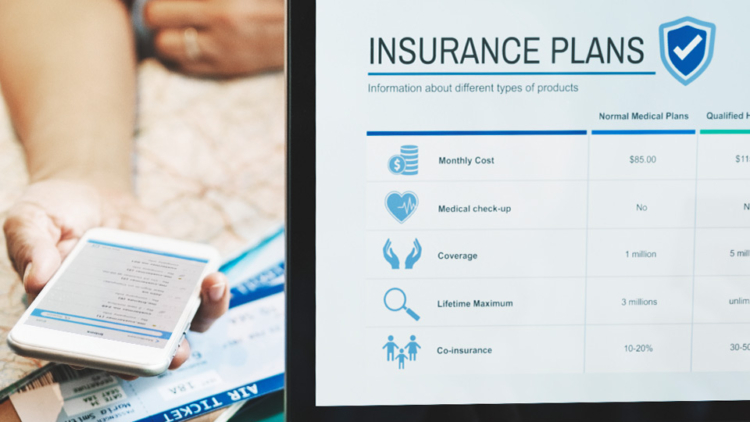The most important insurance item that benefits you as an individual is health insurance. From all of the insurance products out there, it’s the one item that could be a life or death issue for you. Yet so many people walk around without health insurance leaving them without any access to health care.
No matter what your age group is, young or old, at some point in your life you will get sick. If your illness is not remedied by a health care professional than you run the risk of making your illness worse and ultimately dying from progressive illness.
What Is the Purpose of Health Insurance?
Health insurance was created to ensure more people had access to health coverage by making it more affordable. The goal was for individuals to receive health care services but at the same time ensure they don’t end up in financial debt from hospital bills due to the unexpected illness. Depending on what happens to you, the medical debt can really add up and put you in a financial misery. Ultimately, you might have to sell or lose other financial assets to cover your medical expenses. A simple trip to the emergency room or an overnight stay in the hospital can add up to thousands of dollars in bills. Your financial credit could be ruined due to your inability to repay all of these medical expenses.
However, with health insurance you don’t have to worry about those medical expenses. The purpose of health insurance is to protect you from the high medical costs that can arise from unexpected accidents or illnesses. The out of pocket expenses will help you in limiting your medical costs. After paying that out-of-pocket limit amount, you are fully covered for hospital related service costs. To help you better understand what you have to pay for your health care expenses review the terminology below:
Copay: A fee that is paid every time you see your doctor or get prescriptions. Copays are specifically for doctor visits and prescription drugs.
Deductibles: The amount that you have to pay to be eligible for medical services before your health insurance begins to cover your medical bills.
Co-Insurance: After your deductible has been met you might still be responsible for a portion of the medical cost. This is a way for you and your insurance company to share the cost of the medical expenses.
Why Health Insurance Is Important
Acquiring access to health insurance is important because it will help you extend your overall life span. To be clear, there is no medical fountain of youth; but you can live longer by having a healthier life since you have access to continuous health care. The health insurance company has a network of health providers who can provide expert comprehensive and continuous care for you. Their main goal is to keep you alive by providing the best medical service. After building a relationship with the health care teams, you can then focus on preventive services so that you can stay on top of your health. Rather then just being worried about accidents or emergencies, you can focus on prevention and wellness of your overall health. Even if you have pre-existing illnesses, which means you were diagnosed with an illness before you were enrolled in health insurance, you can still obtain health coverage. However, with pre-existing conditions your out of pocket expenses might be higher.
Essentially, having health insurance reduces your stress level because you have peace of mind knowing that you are protected at all times. You will not have this fear of avoiding medical services thinking you will be financially ruined due to medical expenses. In addition, you will have peace of mind knowing that if any kind of medical condition or accident were to happen to you then you are covered.
While there are obvious positive aspects of having medical insurance, there are also things people still have to struggle with, such as:
- Certain health plans limit the specialists you may need to see
- Deductibles can be too high
- Not all medical insurance cover certain procedures or treatments
- Your medical costs could be higher due to your pre-existing medical conditions
- Prescription medicine costs may continue to be high even with insurance
Although some may see these concerns as strong arguments to stay away from acquiring medical insurance coverage, I believe the benefits outweigh the costs. Again, as we have discussed no one can predict the future, and it is wiser to stay prepared by having health insurance so you can always be ready for the unexpected accidents. Another major incentive is, if you keep up with health from a young age, then you can avoid the expensive health problems that come up as you age. Becoming an elderly person with health problems can eat up your retirement income and savings. Preventive care by constantly going for checkups and screening can catch any health issues early and prevent major medical problems for you when you retire.
The last issue is the common excuse of not being able to find health insurance. There are actually many programs out there that can help you but there has to be a will on your part to research and find out which program fits your needs. Here is a list of potential methods for you to obtain health insurance.
Parents: If you are younger than 26 than you have the option of enrolling into health insurance under your parents. Of course, this only works if your parents have health insurance.
Employer: If you have a job then there is a good chance your employer can offer you health insurance. Talk to your HR manager or anyone else that can help you take full advantage of whatever benefits comes with your job.
CHIP: This is the Children’s Health Insurance Program and it provides health coverage to children under the age of 19. However, for you to be approved for this program you must meet some financial eligibility. The eligibility requirements may also vary from state to state.
Medicaid: This option is for people who come from a low socio-economic background. If you meet the income eligibility requirements than there is not much cost involved. The eligibility requirement may also vary from state to state.
Medicare: If you are 65 years or older than Medicare can be an option for you. Also, if you have certain disabilities even without meeting the 65-year-old age eligibility, you can enroll in Medicare as well.



